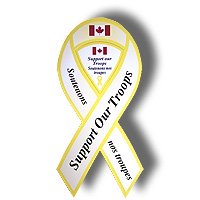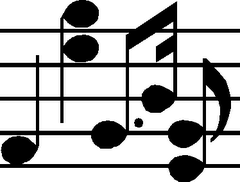Friday, May 04, 2007
History of the Royal Highland Fusiliers of Canada
Thank you to Sue for bringing this to my attention :)
A short history of the Royal Highland Fusiliers and its predecessors:
Unarmed Mennonite teamsters formed the first semblance of a militia from Waterloo Region during the War of 1812, hauling supplies for the military.
The origins of today's regiment can be traced to the MacKenzie Rebellion, an uprising against Canada's colonial government in 1837 and 1838. Rifle companies in both Galt and Kitchener were formed in response, although the rebellion was over before the companies saw any action.
In 1866, the militias were reorganized into the 29th Waterloo Battalion of Infantry. Companies from New Hamburg, Galt and Waterloo helped repel invading Fenians, Irish nationalists based in the U.S., at Fort Erie that year.
Seven members of the regiment fought against Louis Riel's Métis militia in Saskatchewan during the North-West Rebellion of 1885.
During South Africa's Boer War between 1899 and 1901, volunteers from the 29th Regiment served with the Canadian contingent there.
With the start of the First World War, the ranks of the 29th Regiment swelled with new recruits. New battalions were raised in Galt and Kitchener. Waterloo County sent 3,763 men to war, and 486 were killed in action. After the war, the Galt unit was renamed the Highland Light Infantry of Canada and its Kitchener counterpart became the Scots Fusiliers of Canada.
In 1940, during the Second World War, Galt's Highland Light Infantry of Canada was mobilized again, drawing soldiers from the Kitchener unit. The HLI joined the invasion of Normandy and became the first Canadian regiment to attack across Germany's Rhine River. One battle to claim the French town of Buron caused 50 per cent casualties for the unit: 70 died from the fight and another 200 were wounded. By the end of the war, 327 members of the HLI were killed in action.
In 1946, the regiment reverted back to its former reserve status. In the mid-1960s, the Kitchener and Galt units were amalgamated to become the Highland Fusiliers of Canada. Members have since served on UN peacekeeping missions in Cyprus, Golan Heights, Egypt, Cambodia, Bosnia, Croatia and Kosovo.
In 1998, Queen Elizabeth II grants the regiment the title of Royal Highland Fusiliers of Canada.
Subscribe to:
Post Comments (Atom)





























No comments:
Post a Comment